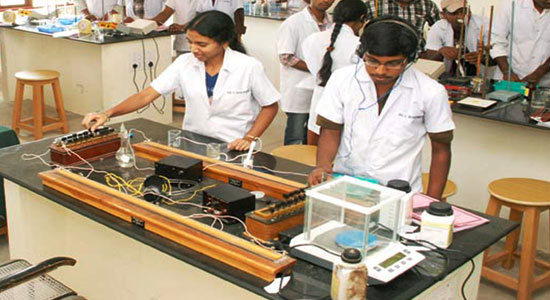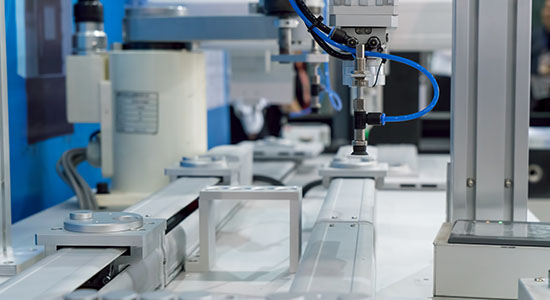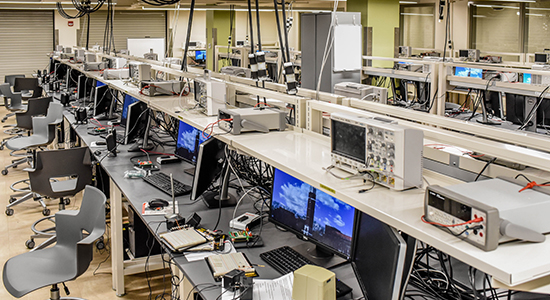Electrical and Electronics Engineering
The Undergraduate course in Electrical and Electronics Engineering is designed to provide students with a sound fundamental education in critical areas of Electrical engineering as well as Electronics. The Department has modern laboratories such as Machines Lab, Power System Simulation Lab, High Voltage Lab, Relay Lab, Circuits and Simulation Lab, Microprocessor Lab and Electric Workshop. Emphasis is placed on Discipline, Regular attendance, Understanding of Basic Concepts and Practical applications.
Our Mission
To provide quality Technical education by integrating various Teaching, Learning Process through
Learner - Centric approaches and enabling the students to meet the challenges in the field of Electrical
and Electronics Engineering.
Vision
To impart quality technical education in the field of Electrical and Electronics Engineering.






